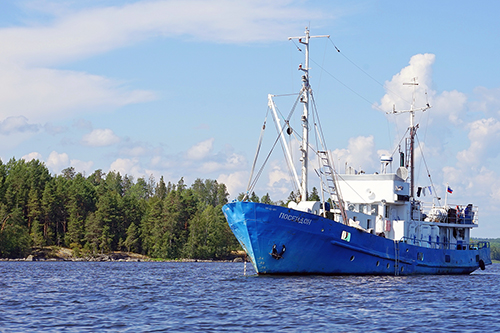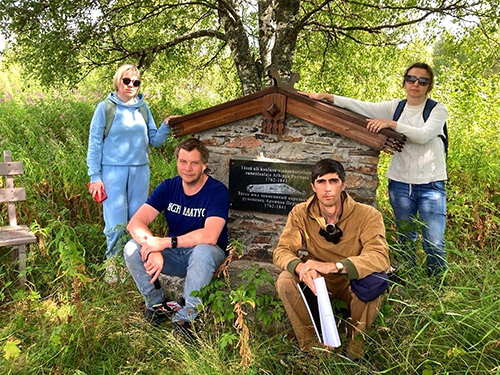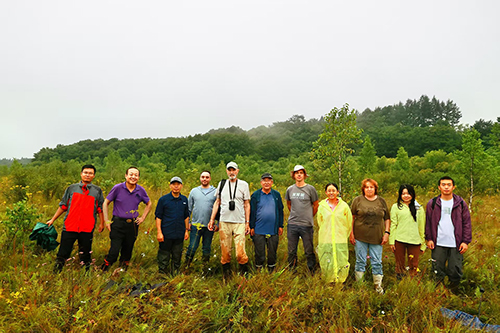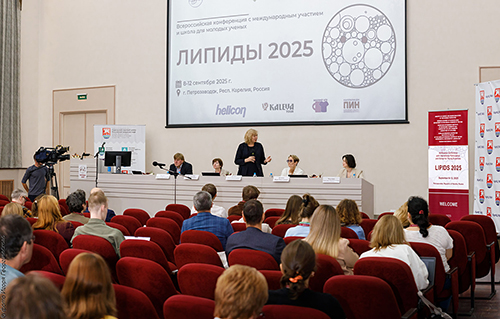On October 29, on the eve of the Forum opening, a session "Water and the City: Challenges and Technologies for Success in Implementing the Strategy of Comprehensive Territory Transformation" was held in Kronstadt, organized by the Government of St. Petersburg, the city's Tourism Development Committee, and Leontief Center. During this session, KarRC RAS Director General Olga Bakhmet presented the scientific community's opinion on the development and conservation of waterfronts and adjacent water areas.
Within the main agenda of the Forum Strategov-2023, Olga Bakhmet took part in two sessions. The strategic dialogue session "Tools for strengthening cross-border cooperation between the regions of Russia and Belarus" discussed the regulatory, legal and practical aspects of launching the interstate Program for Cooperation between the Regions of the Republic of Belarus and the Russian Federation "Belarus-Russia".
As a member of the InterAcademy Council on the Development of the Union State, Olga Bakhmet has previously submitted proposals for the Program from KarRC RAS. In particular, such priorities for Belarusian-Russian cooperation as innovative development and scientific research, environmental protection, and conservation of cultural and historical heritage were highlighted. These and other priorities of the new Program were discussed at the forum by the expert community.
The green agenda can be promoted by setting up a system for monitoring carbon pools and fluxes in terrestrial ecosystems of the two countries, research on industrial waste processing and recycling, distribution of impurities in wastewater, exchange of expertise in the management of invasive species and introduction of the forestry practices that reduce the input of nutrients to water in the Baltic Sea region. Karelian scientists have accumulated substantial experience in these and other research areas, and they are willing to share it with colleagues.

Strategic dialogue session "Tools for strengthening
cross-border cooperation between the regions of Russia and Belarus"
KarRC RAS leader also spoke during the roundtable on international cooperation with African countries for regional development. Since 2022, KarRC RAS has been a partner in the Russian-African Network University Consortium (RAFU). There is a cooperation agreement between the research center and the National Committee for BRICS Research (Russia).
Olga Bakhmet presented the proposals of KarRC RAS on scientific cooperation. First of all, it concerns topics of mutual interest in geology. Karelian scientists have some developments in this sphere. For example, a promising area is to continue studies of ancient cratons, mobile belts and sedimentation basins. Studying them can help us better understand the geodynamics and metallogeny of the early Earth, the role of supercontinental cyclicity in the formation of the face of our planet. Potential objects for joint study include greenstone belts, stratified intrusions and associated minerals, including gold, nickel, chromium, and platinum group elements.
Other potentially productive spheres of international cooperation in addition to geology could be research of soils and soil cover, development of biotechnologies, addressing food security issues, assessment of the state of water bodies and forecasting their changes, improvement of water management methods, development of a framework for plant and animal protection and technologies for the use and restoration of bioresources, development of ecotourism, and others.
On October 31, during the Forum, a cooperation agreement was signed between the Karelian Research Centre of the Russian Academy of Sciences and the Ladoga Skerries National Park. The document was signed by Olga Bakhmet, Director General of KarRC RAS, and Elena Kutukova, Acting Director of the protected area.
– The Ladoga area features peculiar natural landscapes - island ecosystems, skerry areas - and has a unique history. Tens of thousands of tourists visit these territories every year. It was specialists from the Karelian Research Centre RAS who prepared the nomination papers for the establishment of the Ladoga Skerries National Park. We hope that the agreement we signed with the Park's administration will be a new stepping stone in the work to conserve these unique northern ecosystems, - Olga Bakhmet noted.
KarRC RAS and the national park will jointly conduct scientific research, as well as implement scientific, conservation, educational and socio-cultural programs and projects within the national park.
Photos by P. Petrov / KarRC RAS Department for International Cooperation








